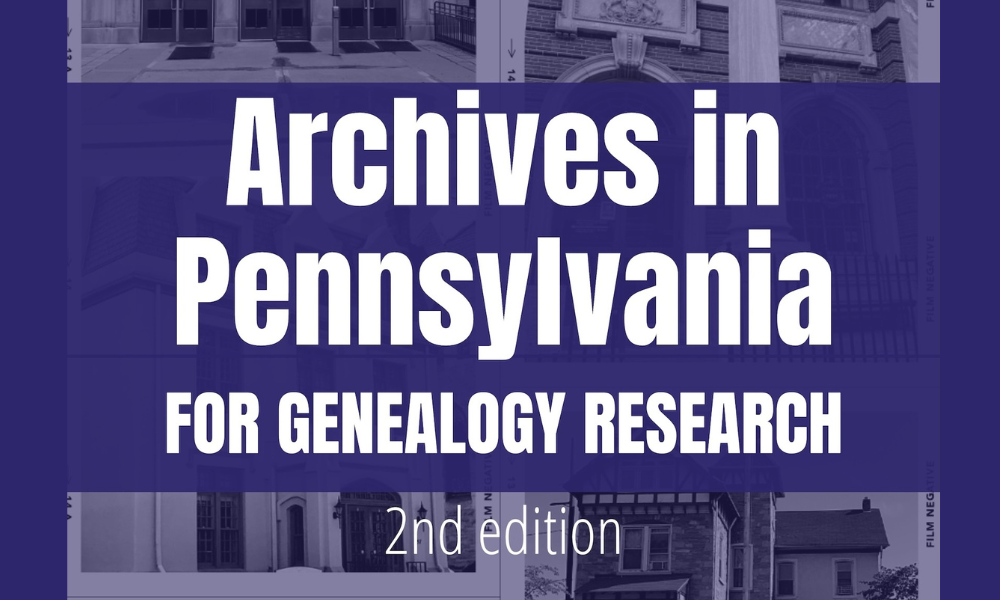Archives in PA: Religious Organization Archives
The majority of religious records are not online anywhere. The key to finding what is needed is starting at the source of the records combined with maps.

No American colony had more religious groups than Pennsylvania.
By the time of the Revolutionary War, the state had dozens of distinct faiths practiced by its citizens. By 1860, on the eve of the Civil War, there were dozens more as existing denominations split over the question of slavery. Pennsylvania was also home to unique religious groups who lived communally and practiced their faith.
All of these factors make genealogy research in religious records a challenge.
Adding to this research challenge is determining where historical records of congregations are currently stored. Congregational records could be kept locally, regionally, or nationally by a denomination. In some cases, the denomination does not have the records at all; instead, they may be found in a local archive, such as a historical society or university special collections library. In other cases, a church has changed its name and/or location many times and researchers have to reconstruct its history to the proper name. Some historical religious records for some years for some locations have been microfilmed and made available online, but online collections are never complete. It takes considerable time and patience to be thorough in religious record research.
If the religion of an ancestor is unknown, start by listing the religious congregations within 20 miles of the ancestor's location. Use a map and note the denominations and the name of each of the congregations. Once you have this list, church record collections on genealogy websites can be searched to see if one of your listed congregations is there. If not, often the local county genealogical or historical society has copies or transcriptions for the historical congregations in their area. After these two searches are completed, a further search can be made at the denominations' main archives listed below.
The main office or headquarters of a religious organization may hold additional records on its members. Examples of additional records include: ancestors who violated the religion's norms, those who transferred out or into the faith, and individuals who served as leaders, ministers, or missionaries.
To repeat: no religious denomination has a fully complete, indexed collection of historical records available online. There are always missing years, missing locations, and missing pages within records. To conduct thorough research, research must be conducted in the archival records of the religious organization and locally in genealogical and historical societies.
Religious faiths which began in Pennsylvania prior to 1920 are listed below, since the majority of traditional genealogy research occurs prior to 20th century. The foundation date listed for the faith is the year it began in Pennsylvania (Many faiths go back hundreds to thousands of years prior to arrival in the state). An excellent book to understand the tenets of each of the faiths listed below is the Handbook of Denominations in the United States. It is regularly updated to include newly organized, or re-organized, religions.
Helpful resource: If you have colonial residents of Philadelphia in your family tree, many of these historical religious records are free to access from home. Philadelphia’s earliest congregations of all faiths have digitized their records and published them on Philadelphia Congregations Early Records, website at https://philadelphiacongregations.org/records .
